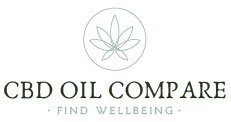TGA NOTICE
CBD Oil Compare is committed to full compliance with the Therapeutic Goods Act 1989, striving to safeguard all Australian consumers against any misleading information.
Please note: This website is not intended for Australian-based consumers, in accordance with the regulations set forth by the Therapeutic Goods Administration (TGA).
If you are not located in Australia, kindly confirm this below to proceed. We respectfully request that Australian consumers refrain from using this website. Thank you for your understanding and cooperation.

